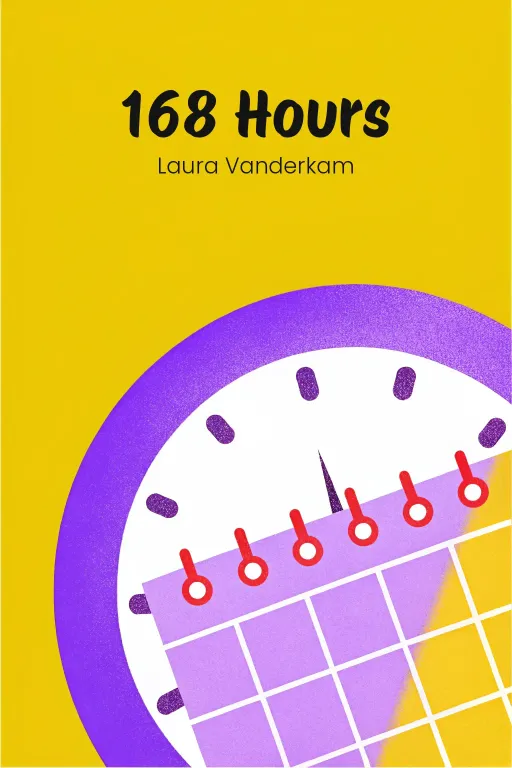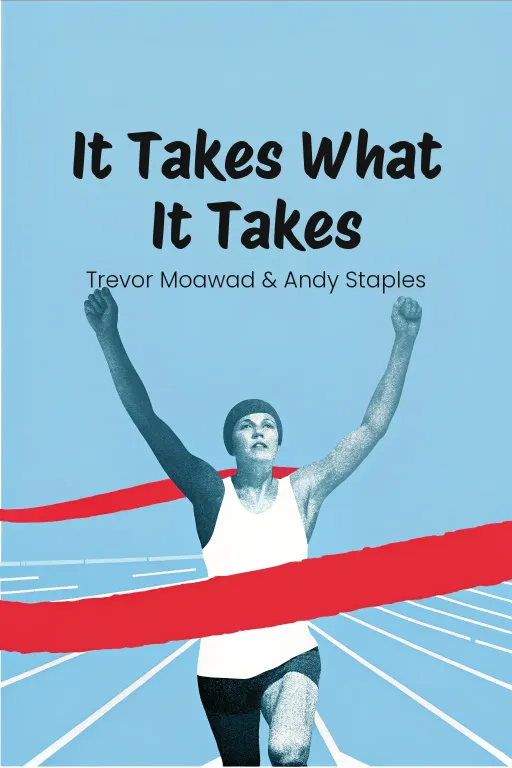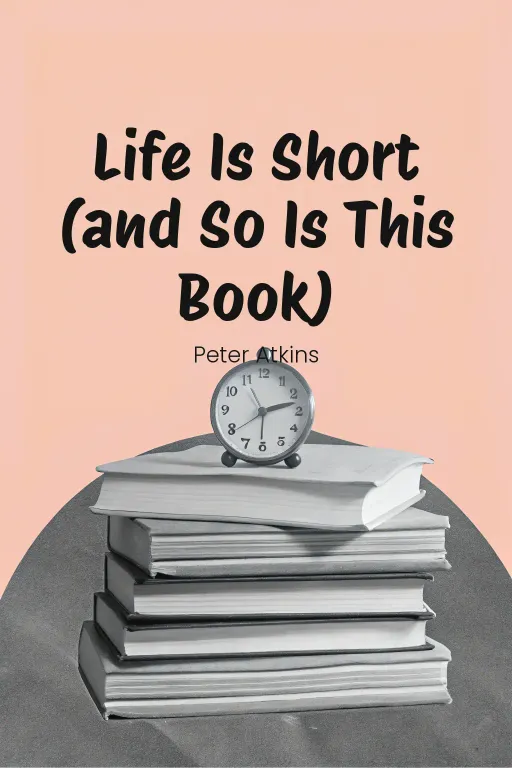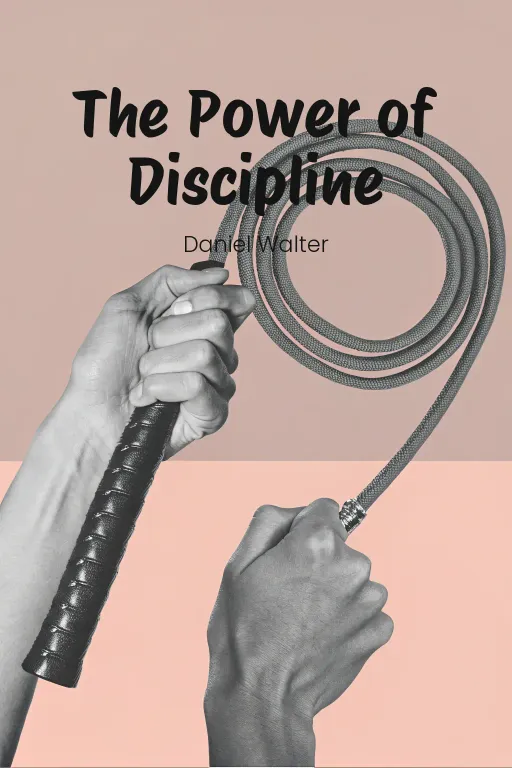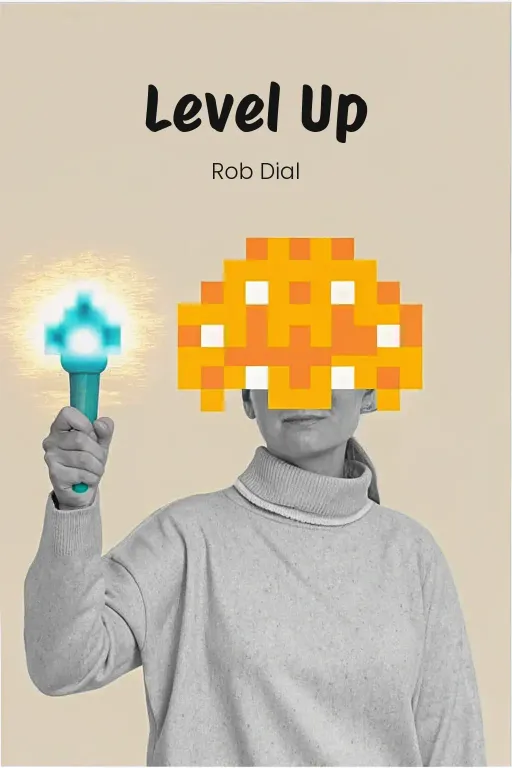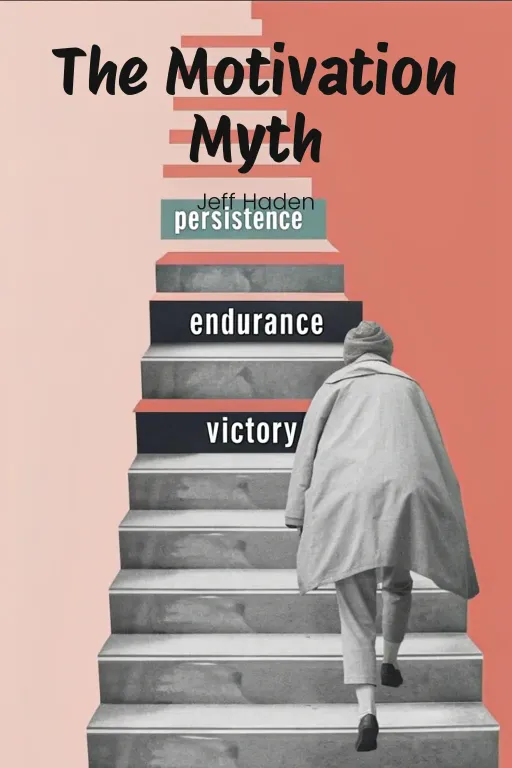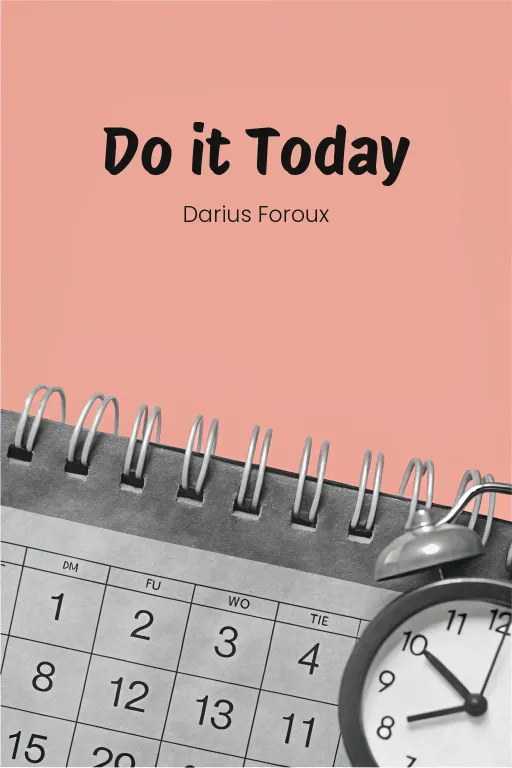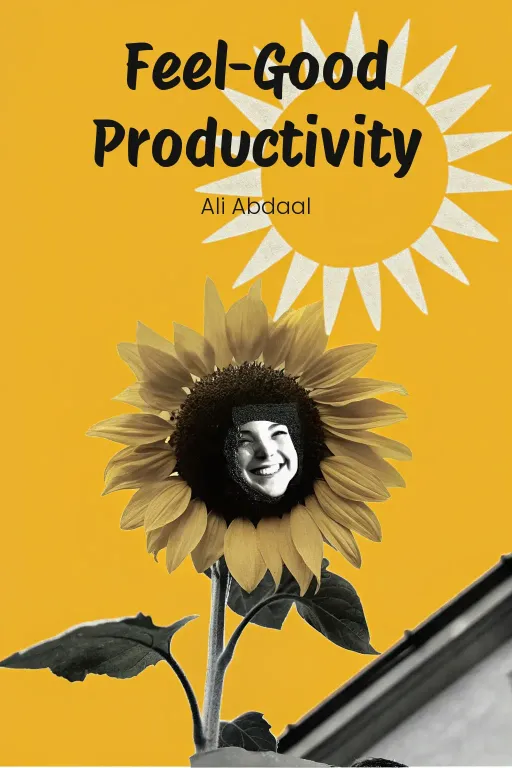
Tiny Steps, HUGE Life Change.
Podcast by Beta You with Alex and Michelle
Smaller Habits, Bigger Results
Introduction
Part 1
Alex: Hey everyone, welcome back to the podcast! Let me ask you something – how many times have you set these huge goals, only to feel completely overwhelmed and give up, maybe even before you really get started? Michelle: Oh man, Alex, preach! I know that feeling all too well. It's like, deciding you're going to run a marathon after spending the last year perfecting your couch-potato skills. Ambitious, sure, but yeah, doomed. Alex: Exactly! Well, today we're diving into this book, Mini Habits: Smaller Habits, Bigger Results by Stephen Guise. It's a total game-changer if you struggle with building, well, any kind of habit. The core idea is surprisingly simple: start tiny. And I mean, ridiculously tiny—one push-up, one page of a book, one sentence of writing. Michelle: Whoa, hold on a second. So, you're telling me doing less actually gets you more? What's the hidden cost? There has to be a catch here. Alex: No catch, I promise! It's actually all about science. Guise explains how mini habits work with our brain to sidestep that natural resistance we all have and actually build momentum. They don’t depend on motivation, which we all know comes and goes. Instead, they rely on willpower, which, turns out, gets a real boost when the task feels super small and manageable. Michelle: Got it – so it's basically about outsmarting your own inner laziness? I'm already on board with that concept. Alex: <Laughs> Well, that’s one way to look at it! In today’s episode, we’re going to break it all down. First, we'll get into the brain science behind mini habits – think of it like planting tiny seeds in just the right soil. Then, we’re going to go through Guise's step-by-step plan for actually sticking with these habits long-term. Michelle: Okay, and let me guess, Alex – this isn't just about finally getting fit or writing that novel you've been putting off? Alex: Exactly! Mini habits can ripple out into every area of your life—your overall productivity, your relationships, even how you see yourself. I mean, one little spark really can ignite a flame in the long run. Michelle: Alright, small sparks and planting seeds. We're getting kind of deep today, Alex! Let’s see if this “tiny but mighty” method really lives up to the hype then.
The Science Behind Mini Habits
Part 2
Alex: Okay, so let’s dive into the science behind mini habits. Stephen Guise really emphasizes why this works, you know? Michelle, did you know that mini habits actually work with—or sometimes against—two key parts of your brain? Michelle: <Laughs> "Work against," I like the sound of that! I'm picturing a brain turf war already. Okay, Alex, who are the key players in this drama? Alex: Okay, first up, we have the basal ganglia. Think of it as your brain’s autopilot. It’s where all your habits, good and bad, get stored once you repeat them enough. It helps you do things automatically, so you're not having to consciously think about brushing your teeth, for example. Michelle: Got it. So, it’s like the brain's designated driver for habits. And it's also why I reach for my phone first thing in the morning. The basal ganglia is the lazy but efficient part of the brain? Alex: Exactly! And then there's the prefrontal cortex, your brain's decision-making center. This part plans, sets goals, and it uses willpower. But here's the thing, it gets tired really quickly. You try to make too many decisions, push for overly ambitious goals, well, it gets exhausted, and you end up falling back on the basal ganglia—on whatever habits are already there. Michelle: So, just to be clear: the basal ganglia is handing me all these usual habits, while the prefrontal cortex keeps calling in sick? Alex: Pretty much! And most common approaches to habit building, like New Year's resolutions, rely way too much on the prefrontal cortex. And that’s why people burn out so easily. Mini habits avoid this. They're so small, they don't use up willpower. They basically gently nudge your basal ganglia, they introduce these new habits without setting off any resistance. Michelle: Okay, these small nudges quiet the prefrontal cortex, got it, makes sense. But how does the basal ganglia learn new tricks? Habits like scrolling through Instagram are years in the making. Is that even possible at this stage? Alex: Good question. So, Stephen Guise puts forward an intentional hack. When you repeat a tiny action, like one push-up or writing just 50 words, you make a neural pathway in your brain. At first, it's faint, like a pencil sketch, compared to, like, the super-highway your Instagram habit has created. Every time you repeat this new action, it gets stronger, like tracing over that sketch with a marker. Then pretty soon, the basal ganglia says, okay, this is now routine. Michelle: So, it's like quietly slipping in a new route into the road system of my brain until it becomes the main way I travel. Trojan horse style tactic! Got it. Can you give us a real-world example? Alex: Sure! Think about the classic coffee habit. Most people start by consciously deciding they need coffee. That's the prefrontal cortex. But after a while, it becomes totally automatic, it's the basal ganglia running the show without you even having to think about it. Now, if someone wanted to replace their coffee with a glass of water, they’d be fighting against a deeply ingrained neural pathway. Michelle: And trying the cold turkey approach to water would require immense willpower, not to mention, probably lead to failure, right? Alex: Exactly. But, if they introduced a mini habit, like committing to just taking one sip of water before the coffee, they’re creating a new pathway, a competing pathway. It doesn't feel like a big deal. Over time, that one sip could become a whole glass. And maybe even cutting back on coffee altogether. Michelle: Sneaky brain rewiring! Why does it have to be so tiny? One sip? One push-up? Isn't that like…ridiculous? Alex: It might seem ridiculous, but there's a good reason for keeping it small. The brain really doesn't like drastic change. Our brains are naturally wired for stability. It's a survival mechanism, you know? Big, sudden changes, like deciding to suddenly work out for an hour every day, it triggers stress and resistance. Mini habits basically work with the brain by making the effort so small that you don’t even notice the resistance. Michelle: Okay, well then let's dive into this "one push-up challenge". I have to admit, when I first heard that Guise really started with just one push-up a day, I thought it was a joke. Alex: I know, it almost sounds silly. But that’s the brilliant part. Stephen Guise wanted to build a fitness habit, and he’d failed again and again with daily 30-minute workouts. Too much, and he quit. Then he decided, one push-up a day. Michelle: And he definitely didn't stop at just one, right? Alex: Exactly! This is where the magic happens. Once Guise got down and did that one push-up, he'd think, "Well, I'm already here. I might as well do a few more," but there was no pressure. That one push-up was a win in itself. And that commitment snowballed into a full workout. Michelle: So, his brain wasn't making up excuses like, "I don't have time for a whole workout," because it was barely any effort at all. Alex: Exactly. And it goes for other things too. You want to start writing? Commit to 50 words a day. By removing the pressure of big goals, you lower the energy it takes to even start. And once you've already started, you’re more likely to keep going. Michelle: And science backs this up, right? Because didn't you tell me that it takes a certain amount of time to actually form a habit? Alex: Yes! Studies show that habits take about 66 days to become automatic on average but the thing is, it’s not about how big the habit is, it’s about repetition. Mini habits focus on being consistent, making it much easier to stick with them long term. Michelle: So, if we're keeping it brief: trying to change everything at once is a bad idea, because your brain will fight back. But take tiny steps, and slowly, your brain will actually start to crave those actions? Alex: Exactly! Genius of mini habits, right? They build momentum and change your brain without draining willpower. They transform small actions into lasting behavior. Michelle: Alright, I'm buying the science here. But how do we actually stick to these tiny commitments? Give me the plan!
Practical Implementation of Mini Habits
Part 3
Alex: So, now that we understand the neurology behind mini habits, let's dive into making them work for you. We’re talking practical steps: breaking goals down, making them a part of your day, staying consistent, and celebrating even the smallest wins. Michelle: Okay, Alex, moving from theory to action. I like it. So, step one in this habit makeover – what is it? Alex: It's all about breaking your goals down into “mini” habits. The beauty of these tiny actions is their almost guaranteed success. Stephen Guise, the guy who came up with this stuff, talks about the "one push-up rule." You want to start exercising? A full workout might scare you, but one push-up? It's so small, your brain barely even registers it as a challenge. Michelle: So, we're talking the absolute minimum effort here, right? But seriously, just one push-up, Alex? What’s to stop me from just stopping there, every single day? Alex: That's where "bonus actions" come in. You do your one push-up, your one sentence, your one sip of water, and then you think, "Hey, I'm already here... maybe I’ll do a little more." Key thing is: even if you don't do more, you still win. It’s about sticking with it, not about how hard you’re going. Michelle: Ah, I see. So, you're tricking yourself into doing more. It’s like overcoming that initial resistance, and then the momentum takes over? Alex: Exactly. And even if all you do is that tiny baseline, you're still building a habit. Think of it as laying the foundation. You can always build on it, but even that first tiny action counts. Michelle: Okay, but even with the science, I feel like I'd forget after a while. Floss one tooth? Write one sentence? How do I even remember to do it? Alex: That's where cues come in. Cues are triggers, either in your environment or what you already do every day that remind you to do the mini habit. You could link brushing your teeth, something you always do, with flossing that one tooth. Or, your morning coffee could be the cue to write one sentence before you take that first sip. Michelle: So, piggybacking new habits on top of old ones. Smart. Instead of creating a whole new routine, you just hitch a ride on one you’ve already got, right? Alex: That's "habit stacking" in a nutshell. You're anchoring the new, tiny habit to something familiar, making it easier to remember. Like, if you check your email every morning, use that as a cue to jot down a single goal for the day before you dive into your inbox. Michelle: Okay, that sounds like it could work. Though, how do you stay motivated long enough for these habits to actually stick? Alex: That's where rewards come in. Our brains love positive reinforcement. Every time you do that mini habit, even that single push-up, give yourself a reward. Doesn't have to be big – a piece of chocolate or even just the satisfaction of ticking something off a list. Michelle: Like giving a dog a treat when he sits. Didn't Jerry Seinfeld use this same concept to write jokes consistently? Alex: He did! He'd mark an "X" on a calendar every day he wrote jokes. Over time, those X's turned into a chain, and he didn't want to break the chain. That streak became its own reward, motivating him to keep writing. Michelle: <Laughs> Turning it into a game. I like it. But you also have to be realistic, right? What happens when you miss a day? Alex: That's when the magic of mini habits really shines. It's not about perfection, it’s about consistency. Things happen. You might miss a day, but because the habit is so small, it's much easier to get back on track. Even on tough days, it's still manageable. Michelle: So, basically, don't get down on yourself if you slip up. It's a forgiving habit. That's refreshing compared to the all-or-nothing thinking we usually have about goals. Alex: Exactly! Mini habits are flexible. They meet you where you are, even on bad days, and they grow with you over time. One push-up, one sip of water, one sentence – small steps, but they keep you moving forward. And some progress is better than none, right? Michelle: Okay, so, to recap: 1) Keep the habits incredibly small. 2) Link them to existing routines using cues. 3) Give yourself a reward, even for the smallest effort. And 4) Track your progress, whether on a calendar or in your head. Feels doable, and dare I say, a bit fun. Alex: It's more than doable – it's transformative. Mini habits show you that small, steady steps can lead to big changes. Just start small, and the rest will follow.
Broader Impact and Lifelong Growth
Part 4
Alex: So, having laid the groundwork, now we can explore how mini habits go beyond just hitting targets... They “really” help you grow as a person in general. Our final point will broaden our view to see mini habits as a starting point, setting you up for ongoing personal growth and confidence. Michelle: Ah, zooming out to the big picture, are we? Not just fitness goals or writing, but how these little things influence your overall personal development, right? Alex: Precisely! Mini habits aren't just about improving one specific area; they're catalysts for lifelong change, affecting how well you bounce back, how much you control your life, how present you are, and how well you adapt overall. Let's kick off with resilience. Michelle, what does being resilient mean to you in your daily life? Michelle: Hmm, I guess resilience is like being a rubber band – snapping back to shape after life’s stretched you out. Are you saying mini habits help with that "snap back" thing? Alex: That's a great way to put it, and yeah, absolutely. Think about it: when we feel overwhelmed, huge tasks feel like mountains, and it's easy to just avoid them altogether. But mini habits break down that intimidation by focusing on what's doable – one tiny step you can actually take. Over time, this builds a mindset of persistence, showing you that even when things get tough, you can still make progress. Michelle: Okay, give me a for instance. Are we talking work deadlines, or, I don’t know, something more personal? Alex: Take decluttering as an example. Your whole place is a mess, right? Tackling it all at once feels impossible. Instead, you make a mini habit: clear one drawer a day. It's small enough to keep up, and with each drawer you do, you're not just tidying up, you’re building your ability to deal with challenges in an organized way. Michelle: So, the drawer gets cleaned, and you’re training your brain to not freak out about big things. It's like building a mental toolkit for whatever life throws at you. Alex: Exactly. And once you've shown yourself that small wins add up to big progress, you’re less likely to be put off by life's hurdles. Mini habits give you confidence in your ability to adjust, which is key to being resilient. Michelle: Fair enough, small wins build mental muscle. What about autonomy? You mentioned mini habits help you feel in control and believe in yourself – where does that fit in the grand scheme? Alex: Autonomy is about owning your actions and trusting that you can succeed on your own terms. Mini habits are great for this because they're designed to be completely within your control. It's not about outside expectations or huge, flashy goals, it's about what you can “really” do today, even if it's a tiny step. Michelle: Alright, let’s say someone’s aiming for healthier habits, like working out. Is one squat a day enough to make them feel like they're back in the driver's seat? Alex: At first, yeah. Because doing that one squat proves they can create a habit, no matter how tiny. That feeling of capability – self-belief – grows each time. And as they get more confident, they naturally start doing more. What it “really” does is change how you see yourself. It goes from "I can’t stick to anything" to "I'm someone who follows through, no matter what." Michelle: I see – it’s not about the squat, but about reminding yourself you're in charge. You’re fighting inertia, one tiny step at a time. That’s empowering, in a way. Alex: Precisely. And that empowerment spreads to other areas. Once you’ve proven you can stick to a small promise, you start tackling bigger things with a "can-do" attitude instead of dread. It’s a positive cycle: autonomy builds confidence, and confidence drives more action. Michelle: You know, that sounds... surprisingly human. It's not about beating yourself up for not being perfect, but gradually trusting yourself more. I like that. Alex: That's the idea! And it connects directly with the next aspect of mini habits – mindfulness. They provide chances to pause and be present, focusing on these small, intentional moments. This encourages reflection and alignment with what “really” matters. Michelle: So, we’re going from empowerment to enlightenment. How do mini habits make you more mindful, though? Doesn’t "tiny and automatic" sound more like a robot than a guru? Alex: It’s the simplicity of the action that helps awareness grow. Say someone wants to eat healthier. Instead of completely changing their diet, they make a mini habit: savor one piece of fruit each day. They focus on that moment – the taste, the texture, how it feels. By paying attention to the here and now, they deepen their connection with the process. It's mindfulness in action. Michelle: Huh. Even something as simple as eating an apple becomes a meditation? I guess slowing down to appreciate the little things could change your perspective. Alex: Exactly. And not just mindfulness, but tracking mini habits – marking them off, celebrating wins – helps you see and appreciate your growth, reinforcing that incremental progress is valuable. Michelle: I like how these concepts build on each other – resilience, autonomy, mindfulness. But what if someone wants to step it up? If one push-up turns into ten, or one apple starts a whole diet change, where does that fit? Alex: That’s the great thing about mini habits – they’re scalable and adaptable; they grow with you. Let’s say someone starts with one compliment a day to strengthen a relationship. Over time, this could become more meaningful actions like date nights or deeper talks. Mini habits aren’t the finish line, they’re the gateway to sustained, evolving progress. Michelle: So it’s not sticking to one thing, but watching it naturally grow into something bigger over time, right? Alex: Exactly. And that adaptability makes mini habits perfect for navigating life's ups and downs. You can ramp them up when you have energy, or pull back during tough times, making sure you stay consistent no matter what. Michelle: Alright, Alex, you’ve convinced me. Mini habits aren’t just about habits; they’re a mindset for life. Resilience, autonomy, mindfulness, scalability... It's like the Swiss Army knife of personal development techniques.
Conclusion
Part 5
Alex: Okay, so to summarize, mini habits basically show us that real change doesn't need to come from these huge, sweeping gestures. It's more about those tiny, manageable steps, right? That way, we’re actually working with how our brains naturally build momentum and consistency. Whether it’s literally one push-up, writing just one sentence, or just that one sip of water, every single little effort counts towards building habits that actually stick around. Michelle: Right, it's almost like a "start small, think big" kind of approach. And it's not just about the habits themselves, is it? It's also about how those little actions kind of ripple outwards into everything else we do. They help us build resilience, take charge of our own growth, and maybe even find a little mindfulness in our otherwise crazy lives. It’s definitely not about being perfect, but about progress that keeps... well, progressing. Alex: Precisely! I think the main thing to remember is: keep it ridiculously simple at the very beginning. Just pick one tiny action –like, so small it almost feels pointless– and then just commit to it. It’s not about doing a lot initially, you know? It’s about showing up consistently. Those tiny steps, they add up and can “really” change things over time. Michelle: Okay, I’m sold. So, whether it’s finally clearing out that one junk drawer or just squeezing out one push-up, just take that first, almost ridiculously small step. You might honestly be surprised at just how far it can actually take you.


